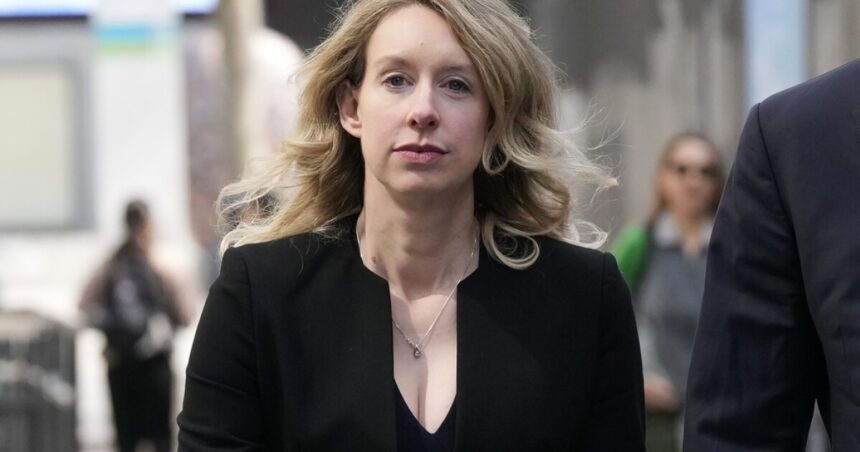A panel of federal judges spent two hours on Tuesday grappling with various legal issues in an attempt to overturn a fraud conviction that resulted in Theranos CEO Elizabeth Holmes being sent to prison after a dramatic rise to fame in Silicon Valley.
The hearing took place in the San Francisco appeals court nearly two-and-a-half years after Holmes was convicted for orchestrating a scam related to blood testing, which became a cautionary tale about greed and arrogance in Silicon Valley. Holmes’ deceptive vehicle was Theranos, a startup she founded in Palo Alto, California shortly after leaving Stanford University in 2003 with ambitions to revolutionize the health care industry.
Although Holmes did not attend the hearing, she is currently serving an 11-year sentence in a prison in Bryan, Texas. Her parents and partner, Billy Evans, were present in court listening attentively to the arguments. The three federal prosecutors who presented the U.S Justice Department’s case during the original trial were also in the courtroom audience, including two attorneys — Jeffrey Schenk and John Bostic — who have since joined private law firms.
Three appeals court judges — Jacqueline Nguyen, Ryan Nelson, and Mary Schroeder — did not reveal their leanings towards upholding or overturning Holmes’ conviction. However, they indicated that it would require compelling evidence to overturn the jury’s decision.
Nelson seemed to be the most conflicted of the judges, showing sympathy when Holmes’ attorney, Amy Saharia, argued that the outcome of the trial warranted close examination, especially since the jury acquitted Holmes on four counts and was deadlocked on three others.
Before concluding the hearing, Nguyen stated that a ruling would be issued in due course without specifying a timeline. Appeals courts can take anywhere from a few weeks to over a year to rule on appeals related to criminal convictions.
Holmes is expected to remain in prison with a release date currently set for August 2032 — earlier than her full sentence due to her good behavior.
Crime
Theranos CEO Elizabeth Holmes has federal prison sentence reduced again
8:08 PM, May 07, 2024
A decade ago, Theranos was considered a prominent healthcare innovator, endorsed by figures like then-Vice President Joe Biden. Holmes had become a media sensation with a fortune of $4.5 billion.
The excitement was fueled by Holmes’ assertion that Theranos devices could analyze blood samples for numerous diseases using just a few drops of blood. However, the devices produced unreliable results, which Holmes and her former partner, Ramesh “Sunny” Balwani, attempted to conceal.
Once the flaws in the technology were exposed, Theranos collapsed in a scandal that led to criminal charges against Holmes and Balwani. Prosecutors aimed to dismantle the “fake it ’til you make it” attitude adopted by Silicon Valley entrepreneurs seeking quick wealth with imperfect products.
In addition to the arguments presented by Holmes’ lawyers, the appeals judges also heard from attorneys representing Balwani, who is seeking to overturn the 13-year prison sentence he received following his conviction in July 2022 for fraud and conspiracy in a separate trial.
Balwani, 58, contends that federal prosecutors manipulated evidence to prejudice the jury against him and crafted a different narrative than what was presented during Holmes’ trial. Unlike Holmes, Balwani was convicted on all 12 counts of fraud and conspiracy, resulting in a longer prison term. He is currently set to be released from a Southern California federal prison in November 2033.





